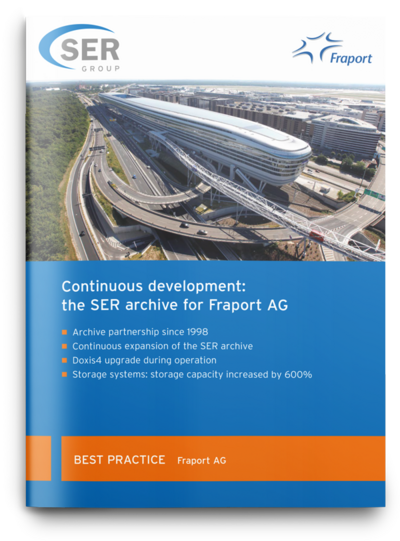What is document management, and why does your organization need to focus on it? We'd like to explain not only the meaning of document management, but also its value. Because as your business grows, so too will the number of documents you need to capture, edit, file, and archive. It's time to optimize these document-driven processes and say goodbye to chaotic file directories.
Document management is essential to optimize your workflows: it covers everything related to handling, organizing, storing and securing documents. It allows you to collaborate more effectively with both internal and external parties, and exchange and edit documents without having to make endless copies. It enables you to meet, manage, and follow up on deadlines. After all, you need to know who's doing what, when they're doing it (or when they did it), and who else is involved or affected.
So it's clear: document management ensures you're not doing things twice, it fosters accountability, and gives you control over the plethora of documents that move through your business processes every day.
Effective document management is a cinch with today's future-oriented ECM systems. Most companies capture, steer, store and archive their documents using document management systems (DMS) — also known as modern enterprise content management systems (ECM).
What is a document management system (DMS)?
That's document management covered, but what is a document management system, or DMS? The meaning of this is clear just by looking at its name: It's a system that allows you to manage all of the documentation within your company, in the broadest sense.
These systems enable you to search through your documents for specific content, file them automatically, work on them through other software (such as Microsoft Office and Outlook), and comment on and edit documents without affecting the original. Document management systems even keep track of changes in your documents, so you can always check the most current version — and refer back to older versions when needed.
Beyond all of that, document management provides structure to the document ecosystem that exists within your business, making it so much easier to cross-reference documents in their specific business context, and review and edit them as you see fit.
Benefits of a document management system
Want to know more about the benefits of electronic document management? We've explained a few of these document management benefits below:
Example of how document management software works
Document management with Doxis
From the moment they begin creating documents, users will see and feel the advantages of document management using the modern Doxis ECM system. Data and documents can be searched directly from Microsoft Office applications. And because everything is stored in Doxis independently of format, employees can not only store audit-proof formats (PDF, TIFF, etc.) and MS Office files (Word, Excel and so on), but can also use these formats as the basis for creating new documents and for document filing in Doxis. Interested? Please refer to more information about Doxis on its dedicated DMS solution page.
Document management in practice: Doxis at Fraport AG

Read our customer story to find out all about how Fraport successfully uses Doxis for its document management. You will learn:
- How Fraport completely overhauled its document management processes
- How 8.7 million legacy documents were successfully migrated
- How successful document management — from editing to document filing — looks in practice
- How easily you, too, can digitally manage your documents
How can we help you?
+49 (0) 30 498582-0Your message has reached us!
We appreciate your interest and will get back to you shortly.
